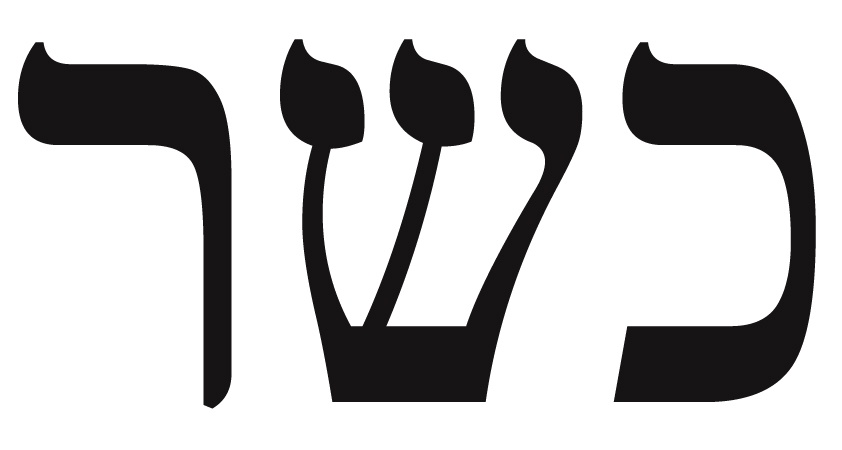Why do my customers demand Kosher and Halal certified products? What does it mean? And how do I get a certification?
When you first encounter the demand for Kosher or Halal certification it may seem quite overwhelming, obscure and confusing. I have worked with Kosher and Halal certification for more than 20 years and have gained in-depth knowledge of the entire certification process. I can thus help to kick-start your certification process and assist in getting the certificate you need to secure your sales. And if you already have a certificate, but struggle with the workload in maintaining it, I can help streamlining your compliance system.
Kosher certification

Who demands Kosher certification?
Food products to be consumed by observant Jews must be Kosher (meaning ”fit”). The demand for Kosher certified retail products in Europe is very limited, but European manufacturers of food products often face a demand for Kosher certification when exporting to Israel and US.
The background for the Israeli demand is obvious, but the US demand may be more surprising. This is actually mainly driven by non-Jewish consumers of which many perceive Kosher as a quality stamp. For this reason, many products in US are only sold in Kosher grade, as this is often simpler than having both Kosher and non-Kosher variants of the same product. It is estimated that approx. 40 % of all packaged food products in US are Kosher certified.
Which products need Kosher certification?
This US perception of Kosher has actually even spread beyond food products, so that many consumers even prefer e.g. Kosher certified household care and personal care products.
When manufacturing a Kosher certified product, Kosher certification of the applied ingredients is often a requirement as well. The demand for Kosher certification does therefore not only apply to retail products sold in Israel and US, but also to ingredients that are used anywhere upstream in the manufacturing of these products.
What does Kosher for Passover mean?
Products to be consumed during the Jewish Passover holiday must have an even higher status, Kosher for Passover. Such products are only demanded by observant Jews – and only one week per year – i.e. it is a quite small demand. On the other hand, Passover is a very important Jewish holiday and Kosher for Passover products are usually sold at a premium price.
Is there a global Kosher standard?
There are no global Kosher standards but lots of Kosher certification bodies – and they all have their own standard. These are generally not documented, and it can thus be difficult to know the exact requirements.
Halal certification
Who demands Halal certification?
Halal is an Arabic word that means “lawful” or “permissible”. It refers to all aspects of an observant Muslim’s life, but is mainly used for food and beverage products that comply with the Islamic dietary rules.
For many years, Halal certified food and beverage products were mainly demanded by consumers in South East Asia, where some countries, e.g. Indonesia, Malaysia, Singapore and Brunei, even had national standards for Halal. However, the demand for reliable Halal certification has grown dramatically in the last decades, triggered by a scandal in 2001, where it was found that a multinational company had introduced a porcine ingredient in a Halal certified food product at a plant in Indonesia. This caused a lot of concern in the Muslim world, and since then the number of Halal certification bodies and Halal certified products have increased significantly all over the world, and national standards have been implemented in several Muslim countries.

Are Halal certificates generally accepted?
Unfortunately, the growing number of Halal certification bodies lead to frequent problems with lack of mutual recognition. This meant that ingredients with one Halal certificate often could not be accepted for use at the customer, if he used another certification body. The situation is now slowly improving, also driven by the establishment of national standards and national accreditation of certification bodies.
Due to this lack of mutual recognition, and because the list of accredited certification bodies differs between countries, there is not one Halal certification body that it globally accepted. Depending on the countries where products are being manufactured and being sold, it may be required to use several Halal certification bodies – and to continuously adapt the certification portfolio.
Which products need Halal certification?
As written above, Halal does not only apply to food and beverage products, and a growing number of household care, personal care and pharmaceutical products are also available with Halal certification.
When manufacturing a Halal certified product, Halal certification of the applied ingredients is often a requirement as well. The demand for Halal certification does therefore not only apply to retail products sold in countries with large Muslim populations, but also to ingredients that are used anywhere upstream in the manufacturing of these products.
